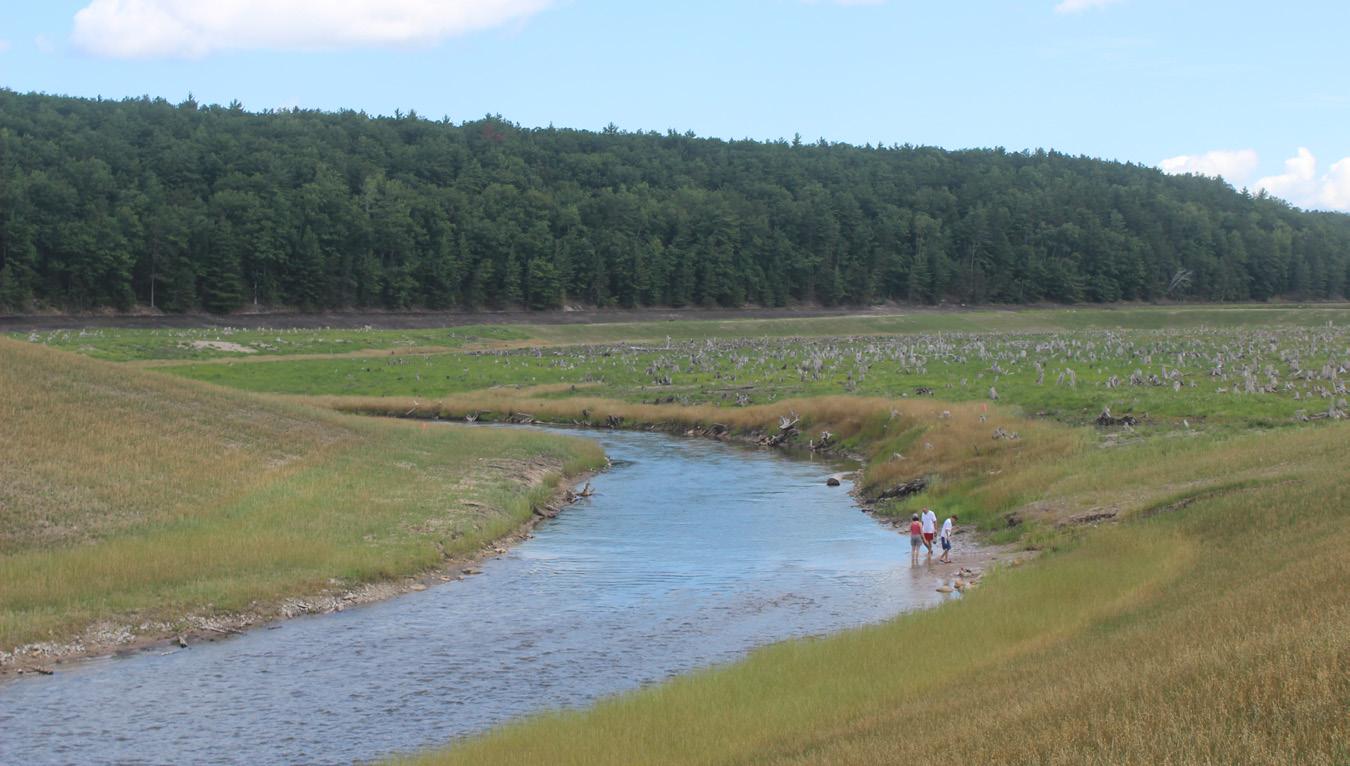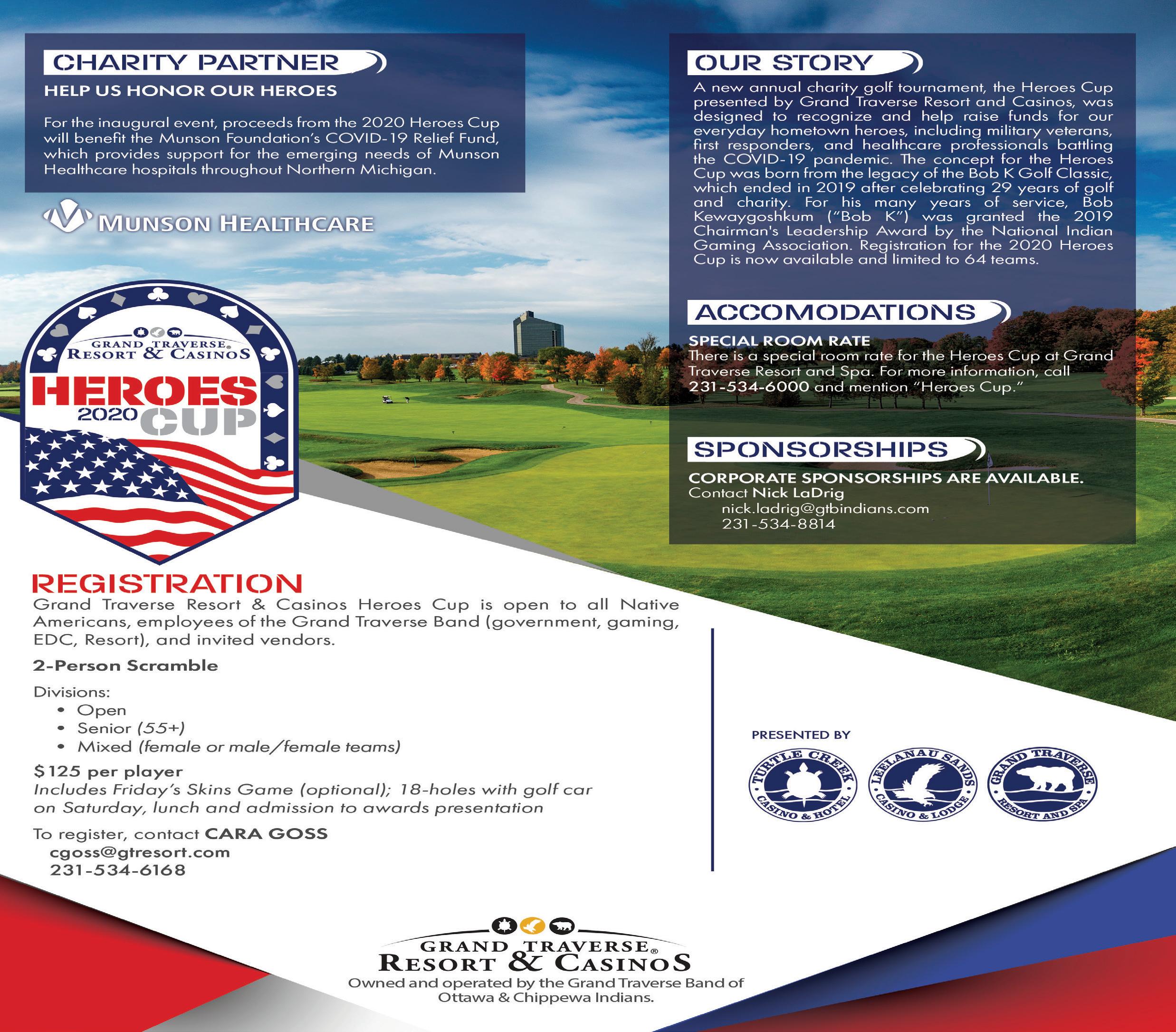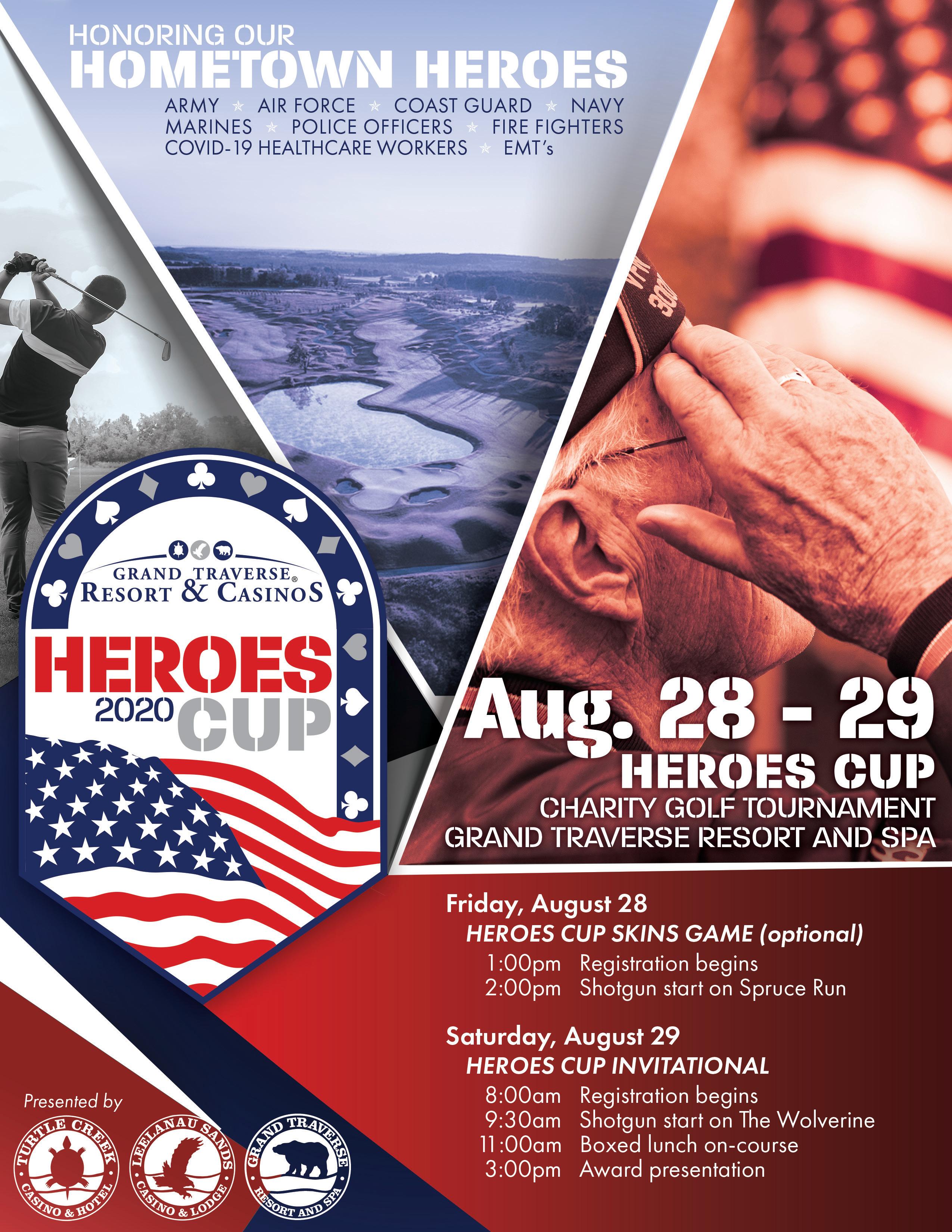
3 minute read
Tips for Bears
from GTB NEWS JULY 2020
by GTB NEWS
Boardman River Dam Project
Nominated for inclusion in EWN Atlas The Boardman River Dam Removal initiative may be up for some much deserved national and international exposure as it was recently selected for inclusion in the second iteration ofthe USACE (United States Army Core ofEngineers) "Engineering with Nature" (EWN) Atlas.
Advertisement
The EWN (Engineering with Nature) initiative has gained massive momentum over the years and in fall 2018 an Atlas was published that highlighted numerous projects from around the world. The first edition contains beautiful photos ofprojects, such as the Boardman river project, that have reclaimed nature from the former clutches ofenergy harnessing projects. All ofthese projects have reunited nature and restored balance to many eco systems.
The Brown Bridge Dam project began in 2012, and continued with removal ofthe Boardman and Sabin Dams in 2017 and 2018. A combined 210 miles ofriver were reconnected to the Grand Traverse Bay ofLake Michigan. “This project also reinstated natural flow, improved aquatic habitat and re-established a rare cold water fishery, improving both the mix and population ofvarious species.”-Brett Fessel, GTB River Ecologist.

The Grand Traverse Band Natural Resources Department was also featured in a documentary Film featuring the Boardman Restoration Project “The Ottaway - A River Reborn”. GTB NRD certainly appreciates the nomination. Lets hope to see the project in EWN Atlas volume 2. Indigenous Futures Survey Native Organizers Alliance, IllumiNative, and Aspen Institute’s
Center for Native American Youth Announce “Indigenous Futures Survey”Research Project
Native Organizers Alliance and other Native groups are partnering with acclaimed researchers Dr. Stephanie Fryberg (Tulalip) ofthe University ofMichigan and Dr. Arianne Eason ofthe University ofCalifornia, Berkeley, to conduct the Indigenous Futures Survey (IFS) -- a groundbreaking research project for Native peoples by Native peoples.
The 15-minute survey will close on August 1, 2020. The results will be published in September, invite as many Native relatives as possible, and we are seeking to partner with other organizations and tribal leaders to help.
The goals ofthe 2020 Indigenous Futures Survey are to:
1. Identify Native people and tribal communities’priorities for changing narratives about Natives and building a more equitable future, especially in the face ofthe COVID-19 pandemic;
2. Explore the experiences and attitudes toward federal, local and tribal governance and engagement in democratic processes.
3. Demonstrate how to engage tribal and Native communities to promote shifts in the public discourse and point the way to collective actions and democratic engagement.
Safe for Recycling
Plastic Bottles/Containers—Clean and dry. Food/Beverage Cans—Clean and dry aluminum, steel, aerosol cans. Check with your local recycling programs for recycling cartons as they vary by city and county. Paper/Cardboard— Flatten all cardboard.
Pizza boxes should not have leftovers in it (cheese, crust, etc.) Glass Bottles/ Containers—Glass rules vary by local programs. Check with your local program.
3 Rules for Recycling
Recycle clean bottles, cans, paper and cardboard. Keep food and liquid out of your recycling. No loose plastic bags and no bagged recycla
bles.
Not Safe for Recycling
Do not bag your recyclables. Put them loose in the bin. No plastic bags. Plastic shopping bags get tangled in the recycling equipment. Reduce and reuse or visit plasticfilmrecycling.org to see where you can recycle them. No plastic wrap or film—Plastic wrap, bubble wrap, sandwich bags/freezer bags. Reduce buying these products or reuse when you can.
No cups with wax or plastic coating—do not recycle plastic lids. No polystyrene foam—no Styrofoam to-go containers or packing peanuts. No dirty diapers. No tangling items. No household items.
No medical waste.
No garage waste—car parts, scrap metal, tires, filters, propane cylinders, etc. Do not recycle greasy containers, liquids, soggy items or containers with food still in them.




